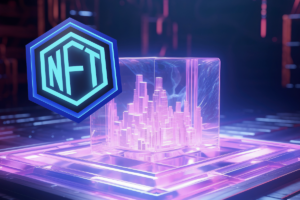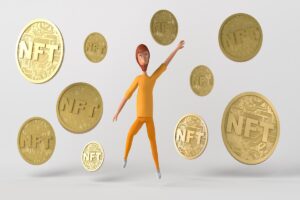The community culture is the backbone of web3. It diffuses into every aspect of society, and investment is no exception. On the other hand, we still need more tools for effective collective investments.
In this article, we like to introduce a blockchain company, Syndicate, that envisions a future in which capital, social networks, and communities work together seamlessly. In other words, community-driven, interoperable, and decentralized investing is its target. For this purpose, the company is building tools to invest and raise capital in ways native to web3.
Syndicate has two products at the moment: investment clubs and web3 collectives. Together, they underpin the necessary infrastructure for realizing the vision of blockchain-powered social investing.
#1 Investment Clubs
Up to 99 people can come together and pool their capital into a Syndicate investment club and invest collectively in crypto assets, such as NFTs, ERC-20 cryptocurrencies, and web3 companies. It’s also possible to invest in off-chain assets, like start-up equities. However, clubs must record off-chain investments manually. Members can monitor and manage all assets via Syndicate’s dashboard.
How to create and run an investment club
Clubs are created by admins who connect a web3 wallet with the app. You can view here a demo of launching an investment club. The admin can then invite members to join the club. Clubs are able to form legal entities if they wish to. A legal entity must be built if clubs plan to invest in start-up equity.
All investment club members are expected to contribute funds and actively participate in investment decisions. Each member must own a web3-compatible wallet, like MetaMask, to join and transfer funds into the club’s wallet.

Investment Club’s ERC-20 tokens
Upon creation, each club receives its own ERC-20 token. Each member’s stakes in the club’s wallet represent their share. After depositing funds into the club, everybody receives their own share of ERC-20 tokens proportional to their contribution. This method of sharing follows the model suggested by a Syndicate investor Balaji Srinivasan.
These tokens are nontransferable; they can only be minted and burned. When someone first joins the club, they’re minted, and if a member leaves the club, they’re burned. Their primary function is that of a governance token. So, members can use tools like Snapshot and Coordinape for voting and coordinating the community. The compatibility of ERC-20 tokens within the ecosystem allows integration with many more tools.
Members can transfer ownership from one wallet to another using a built-in Syndicate app feature.
#2 Web3 Collectives
Syndicate has a no-code tool that allows anyone to build a web3 social network. These social networks are called collectives, and they work similarly to clubs in that there must be an admin who creates and runs them. Members connect the collective via web3 wallets and hold the collective’s NFTs.
A Syndicate collective is an ERC-721 smart contract that its community owns. This means a collective will be interoperable with everything within the web3 ecosystem that works with ERC-721 tokens, including investment clubs and other future products of Syndicate.
These interoperable and compatible ERC-721 collectives are the first path toward the web3-native investment platform that Syndicate has set as a target. The company will add more tools and integrations to enable communities and capital to work together.
About the company
Ian Lee co-founded the company. As a significant blockchain player that aims to revolutionize investing, Syndicate is backed by leading venture capital firms and well-known private investors. They include Andreessen Horowitz, IDEO CoLab Ventures, Coinbase Ventures, Alexis Ohanian, Matthew Ball, and Snoop Dogg, just to name a few. The web3 company raised over $28M from these investors.
The company partnered with the global blockchain law firm Latham&Watkins for legal issues and with Doola for compliance services.
Author
-

Nagi An is a content writer who is passionate about NFTs, web3, DAOs, and DeFi. She's covers a variety of topics about NFT fundamentals.




